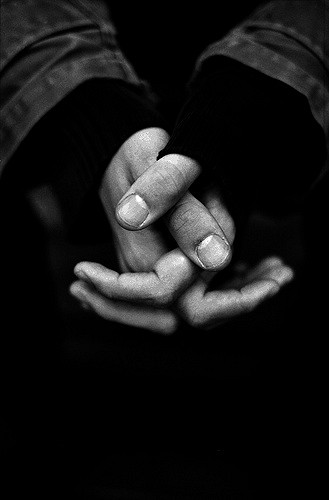Katie’s Bookshelf– Searching for Sunday by Rachel Held Evans Review
 Welcome back to Katie’s Bookshelf!
Welcome back to Katie’s Bookshelf!
Life’s busy, really too busy to waste time on bad books, and The Sisters of Katie Luther are here to help! Feel free to eavesdrop on Sandra Ostapowich, Holly Scheer, and Ellie Corrow, as they use technology available to regularly e-chat about books we’ve chosen to read and discuss together. These reviews are informal, probably slightly snarky, but always informative, and designed to help you determine what is worth your consideration. Pull up a chair, a cup of tea, or something else, if you prefer, and help yourself to our conclusions, as we explore what is on offer.
Our book this time is the new book by Rachel Held Evans, Searching for Sunday. Rachel is a blogger and an author of a New York Times best selling book on theology. She frequently speaks to groups on topics relating to millennials and the church.
First, let’s look at all the good.
Searching for Sunday is a quick, conversational, easy read. Evans delves into doubt– doubt that can be felt by those who have been active in churches and from devout backgrounds. She is engaging, thought-provoking, and an eloquent writer who knows her audience well and relates to them. She has a wonderful way of focusing on death and resurrection as the Christian paradigm that attempts to capture the “bigness” of what the sacraments encompass beyond the rituals we see.
The book is organized around the sacraments recognized by Rome, which is a fascinating approach, though she is very loose in her definitions and applications of these sacraments. In this respect, she isn’t far removed from her Evangelical roots.
In the section titled, “Baptism” she says that God is in the business of bringing dead things back to life–we need to be prepared for Him to go into the dark, dead places of the world, and that includes your own heart. She doesn’t shy away from the existence of evil and she doesn’t follow many liberals into making evil just some simple by-product of corrupt societal systems. Rather, she is clear that evil lurks within us all. Unfortunately, her explanations of Baptism don’t include anything actually happening to the one being baptized, beyond their being brought into a faith-community. But interestingly enough, she says, when she was once asked why she is a Christian, despite all of her doubts, she replied that Christianity is the only religion that accounts for how messed up we and the rest of the world are because of sin.
She addresses the quote attributed to Augustine “The Church is a whore, but she is also my mother.” Although she is, admittedly, sympathetic with this line of thinking, she also uses it to bring to light some interesting insights on how women are often viewed within the church. Why do we seem so comfortable with this whore/mother bifurcation? Even though the Church is feminine, a point she clearly underscores, why are these the only two ways of being feminine? Many also complain about the “feminization” of the Church today but the Bride of Christ is, by nature of her relationship with the Bridegroom…feminine. Clearly, Christians need to have some discussions on terminology and how this fits with our theology. Evans also brings up the important point that women have many ways to nurture in addition to their wombs; we nurture with our hands, minds, and words too. She deconstructs the popular caricature of feminism which supposes feminists want men and women to be interchangeable, instead seeing herself as distinct from men, yet without pigeonholing her femininity.
Acceptance of the outcast is important to Held (and millennials), and she doesn’t shy away from criticizing the treatment of homosexuality in the church. Unfortunately, many conservatives have exhibited a lack of compassion and our words have driven struggling sinners from the Church, leaving them despairing that they are beyond redemption. We can also create a sense of isolation which fails to take into account the real loneliness and fear of those among the faithful who are struggling with homosexual temptations.
Because authenticity and healing are so important to Held, she remarks that AA “does church” better than the church. This is not due to unity in the hearing of the gospel, but rather in the solidarity of open, honest confession. This, paradoxically, shows the strength and the weakness of Held’s undertaking: we are all broken sinners in need of confession…but absolution comes in the form of acceptance, not the forgiveness of sins.
Now for the bad.
In her desire to refashion the church into a monument of acceptance and community, she builds her own false dichotomy in which you either love sinners and accept them unquestioningly or you shun and exclude them from your churches. This is trading one false love for another and is present most clearly in how she addresses homosexuality. Part of her issue here is grounded in her ecclesiology, as she defines church almost exclusively as a community, not necessarily even of a common faith — odd, considering that she’s organized her book around the sacraments.
Here, she flies in the face of her own death/resurrection framework because if homosexuality isn’t a form of brokenness — then what exactly is God healing? Rejection you’ve felt? Or also forgiving your own sexual brokenness? Brokenness in general? It’s strange for someone who recognizes the evil that lurks in our hearts, damaging our very relationship with God and our neighbors, to cordon off sexuality from this evil. Thus she places the Church in a strange position of speaking an absolution for something that she says isn’t sinful — and that is potentially very insulting. In her view, wouldn’t that be similar to asking God to forgive me for being a woman? This makes her understanding of absolution, which is not remotely sacramental, plainly obvious.
Held talks a lot about the sacraments, yet for all her talk about them, she seems to have no idea what they do, or what they’re for. Even for an Episcopalian, it’s a very shallow and abstract position to take. For Held, the sacraments serve to console sinners emotionally, but hold little meaning otherwise. It took about half the book to get really sick of the emotion-laden, esoteric explanations of the sacraments that completely ignore the historic significance and eschatological reality of them. And that? It would blow away even what she did say well. But she didn’t bother to scratch the surface. It’s interesting that she rejects evangelicalism yet persists in referring to the sacraments as “outward sign of an inward grace” while defining grace variously.
It’s disappointing that her discussions of theology are typically vague and simplistic; while she gives the impression she’s widely read in these areas and talks about how frequently she travels and speaks to church groups, she doesn’t evidence it here. Tough questions are asked, but her answers do not demonstrate deep theological consideration. Instead, she often takes the easy road by failing to really assert anything other than love for the outcast.
This scheme leaves little room for Jesus as anything other than a model, giving the reader the impression we are to simply be authentic and love people.
She did try to give voice to what many of us have thought — why can’t we just get along, love each other, love the weak and the outcast? She asks a valid question, but fails to answer honestly. Her answer is a cop out, as her stylized acceptance is just another tool to obscure authenticity. If sinners aren’t brought the gospel, and aren’t leveled by the law, your friendship in their brokenness can easily become a way to display your “compassionate” bona fides. In this scheme, the church’s unity is no longer in Christ, but in a rather nebulous definition of sin and healing.
She’s looking for a comfortable truth, but there’s a problem. Is following Jesus supposed to be easy? Pointing at the sacred conservative cows and how people fail to address them, she doesn’t see the cow sitting in her own living room. This is why we need the mirror of the Law.
Bottom line — do we recommend this book?
There’s a lot of good in it that people can identify with. But it contains a cheap Law and a cheap Gospel. She’s still rooted firmly in evangelical thought, just in fancier clothes. She answers tentatio by not really going to the Word and the Sacraments, but by finding community where she’s accepted. Evangelicals cheapen the Law one way and she cheapens it to another. Be cautious reading this if you’re struggling with distinguishing Law/Gospel.



2 Comments
Christine
Thank you for this review! I had read excerpts and thought the book sounded eloquently written. However, I had misgivings about the platform Ms. Held’s been given (or has taken) considering her lack of theological training and experience in the church (in any ministry, lay. mercy/outreach, etc.) Also, I recognized her popularity could only come with accepting and speaking the appointed liberal points of view.
K.M.
Good review! I have only read the occasional blog post friends have linked to over the past few years by RHE, but what you say seems like a good evaluation of her thoughts as I understand them. It would have been easy to focus on just the bad, so I appreciate that you took the time to reflect on how some of her writing does indeed raise questions we should all think about.
I’m interested in knowing more about the issues you bring up about feminization / feminine terminology used about the church and how “She deconstructs the popular caricature of feminism which supposes feminists want men and women to be interchangeable, instead seeing herself as distinct from men, yet without pigeonholing her femininity.” I’d really like to see more on this from a Lutheran perspective.